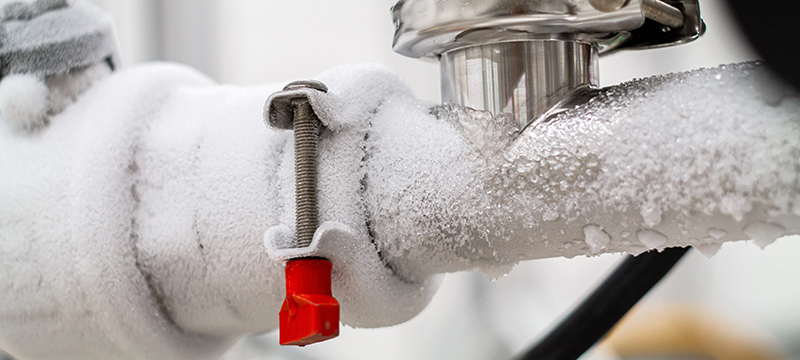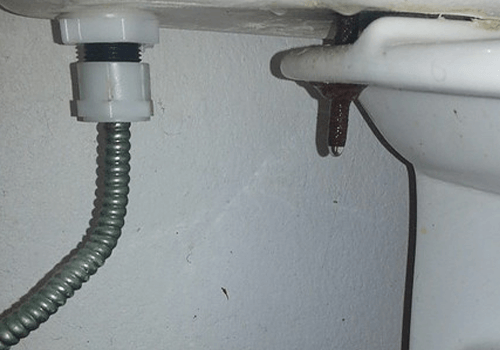Wise Approaches to Guard Your Plumbing in Chilly Temperatures
Wise Approaches to Guard Your Plumbing in Chilly Temperatures
Blog Article
What are your thoughts about How to stop pipes from freezing during the winter?

All property owners that live in warm climates must do their ideal to winterize their pipelines. Failure to do so can spell calamity like icy, cracked, or ruptured pipelines.
Attempt a Hair Clothes Dryer or Warmth Gun
When your pipes are practically freezing, your reliable hair dryer or heat gun is a godsend. If the hot towels do not assist dislodge any resolving ice in your pipes, bowling warm air straight right into them might aid. You might end up destructive your pipes while trying to thaw the ice.
Open Up Cabinet Doors Hiding Plumbing
When it's cold outside, it would certainly be handy to open cabinet doors that are masking your pipelines. They could be someplace in your kitchen area or restroom. This will certainly enable the warm air from your heating unit to distribute there. Because of this, you stop these subjected pipelines from freezing. Doing this little trick can keep your pipelines cozy and restrict the possibly harmful end results of freezing temperature levels.
Take Time to Wrap Exposed Water Lines
One simple and also awesome hack to heat up cold pipes is to wrap them with cozy towels. You can likewise use pre-soaked towels in warm water, just do not fail to remember to wear safety handwear covers to secure your hands from the warm.
Turn On the Faucets
When the temperature declines and also it appears as if the freezing temperature level will last, it will help to turn on your water both indoors as well as outdoors. This will maintain the water moving via your plumbing systems. Additionally, the movement will certainly slow down the freezing process. Notably, there's no demand to transform it on full blast. You'll end up throwing away gallons of water by doing this. Rather, aim for regarding 5 declines per minute.
Shut down Water When Pipelines are Frozen
If you see that your pipes are entirely icy or nearly nearing that phase, turn off the main water valve instantly. You will normally locate this in your cellar or laundry room near the heating system or the front wall surface closest to the street. Transform it off today to stop additional damages.
With more water, more ice will certainly stack up, which will ultimately lead to rupture pipes. If you are uncertain regarding the state of your pipes this winter season, it is best to call a professional plumber for an assessment.
All house owners who live in pleasant environments should do their best to winterize their pipelines. Failure to do so can spell catastrophe like icy, cracked, or ruptured pipelines. If the warm towels do not assist dislodge any kind of clearing up ice in your pipes, bowling warm air directly into them might help. Turn off the major water valve immediately if you see that your pipes are completely icy or almost nearing that phase. With even more water, more ice will stack up, which will at some point lead to break pipelines.
PREVENT YOUR PIPES FROM FREEZING THIS WINTER
A Leading Cause of Property Damage
When the weather is taking a deep nose dive into the cold dreary days, the risk of your pipes freezing and potentially bursting skyrockets. Unfortunately, during these cold dreary months, burst pipes are the most common denominator for property damage. The pipes that are most at the risk are those that are in areas where it is most cold in your home. For instance, pipes located in interior places such as basements, attics, and your garage. Unfortunately, that doesn’t mean that the pipes running through your cabinets or exterior walls can’t freeze. Good news, however, is that you can do things to help prevent pipes from freezing.
How to Prevent Pipes From Freezing
Once the temperature starts to drop during the winter, you should be taking the proper measures needed to ensure that your pipes stay warm and that there is circulation of water through them. Some steps that experts may recommend could go against your better judgement when it comes to saving water and heat. However, it would go without saying that when expenses are compared, damaged pipes could put a bigger dent in your wallet than a water bill.
What Can I Do?
Keep your garage door closed. This is very important, especially if you have water supply lines running through your garage. Open your kitchen and bathroom cabinets to allow warm air to circulate through them. Allow air circulation throughout your home. Keeping the interior doors open will once again allow the warm air to circulate inside your home. Ensure your thermostat is running the same temperature throughout the night and day. If you plan to be away from home during the cold months, set your temperature no lower than 55° F. This should provide enough heat to keep the pipes warm and prevent any remaining water inside the pipes from freezing. For more of a long-term solution, add insulation to attics, basement, and other crawl spaces around your home. By allowing your faucet to drip, it will alleviate pressure in the system. This is important because the pressure that is created between the blockage and the faucet can potentially cause the pipes to burst. Allowing the faucet to drip will prevent the pressure from building up, therefore keeping the pipes from bursting. Seal any cracks, openings, and crawl spaces around your home to prevent cold air from coming inside. This keeps your pipes-not to mention your home-warmer and less susceptible to issues caused by freezing temperatures. For the pipes in your home that are easily accessible, applying electrical tape to them might prevent them from freezing over. This is a quick fix, as you can apply the tape directly to the pipe. There are two options for heating tapes. One turns on and off by itself when it senses heat is needed. The other type of heating tape needs to be applied when heat is needed and removed when not necessary. If you have exposed pipes in your home, you can check this website to take a look at a few options that would be available at a shop near you.

I ran across that article about Prevent Freezing and Bursting Pipes while doing a search on the web. Are you aware of another individual who is very much interested in the niche? Take a moment to promote it. Many thanks for taking the time to read it.
Precise fixes offered. Report this page